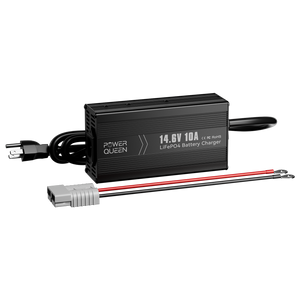Unlocking the Benefits of Battery Management Systems (BMS)
This article is designed to provide you with an understanding of Battery Management Systems (BMS) and their capacity to enhance device performance. It offers essential information for engineers, hobbyists, and those regularly using battery-operated devices. Without further ado, let us begin!
Part 1: Defining BMS
A Battery Management System (BMS) is an intricate electronic device incorporated within rechargeable batteries to monitor and regulate performance. Its primary role is to ensure that the battery operates under safe and optimal conditions by preventing overcharging, over-discharging, and overheating. Without a BMS, batteries can be susceptible to damage that can harm not only the battery life but also the device being powered.

The BMS provides real-time data about the battery's state of charge, voltage, temperature, and additional parameters. It also accommodates any adjustments needed for optimal battery usage. BMSs are widely implemented in electric vehicles, renewable energy systems, portable electronics, and medical devices to name a few.
Part 2: Significance of BMS in Battery Maintenance
The importance of a Battery Management System (BMS) is critical in preserving the overall health and performance of batteries. Designed to provide real-time data and safety measures, the BMS monitors power batteries continuously. Different types of batteries possess unique requirements, including voltage, temperature, and current limits, requiring BMS to keep a close eye on cells to prevent damages beyond safe operating limits. Lithium batteries, for instance, can be harmful when overheated, and the BMS plays an integral part in regulating each cell's temperature to ensure it remains at a safe level.

Cell balancing is another aspect of BMS where every cell in a battery pack can discharge or charge at different rates, causing an imbalance that can affect the entire pack's lifespan and stability. Cell balancing ensures that the state of charge remains consistent across the battery, and the BMS monitors and distributes the charge equally to optimize performance and prolong battery life.
Part 3: How Do Battery Management Systems Work?
Battery Management Systems (BMS) don't follow standardized rules but rather depend on the battery pack's size, complexity, and application, including safety, warranty, and lifespan concerns, amongst others. BMSs need to comply with the certification requirements imposed by the various governing bodies, avoiding possible penalties and costs.
The BMS's design features can vary, with two critical aspects being battery pack protection management and capacity management.
The Protection of Current:
BMS monitors current and cell/module voltage of the battery pack in accurate and well-designed battery systems that protect battery packs from usage that goes beyond manufacturer recommended cell specifications. Lithium Iron Phosphate (LiFePO4) batteries, for example, require specific charging and discharging current limitations, and BMS sets maximum continuous current limits to ensure safety and prevent battery damage.
The Protection of Voltage
Voltage Protection is another vital function of BMS that monitors and controls the charging and discharging process to keep the battery within its safe operating range. BMS employs several methods to avoid overcharging, such as limiting charging current, while undervoltage protection safeguards the battery from discharge damage by discontinuing discharge when voltage drops below specific limits.
The Protection of Temperature
Temperature Protection is another essential function of BMS that prevents excessive heating or cooling by monitoring and controlling battery temperature and implementing thermal management strategies like passive or active cooling/heating methods. It also limits charging rate when the battery temperature reaches an excessive high so to avoid battery damage.
The Protection of Over Charge and Over Discharge
Protection against Overcharging and Overdischarging is another crucial function of BMS.
A Battery Management System (BMS) plays a crucial role in safeguarding batteries by continually monitoring their voltage and current during both charging and discharging processes. The BMS implements various techniques to protect the battery, including overcharge and under voltage protection, state-of-charge (SOC) estimation, balancing, and temperature monitoring.
To avoid overcharging and potential damage to the battery, the BMS limits the charging voltage or current once the battery reaches its safe maximum voltage. Similarly, the BMS restrains the discharge process or terminates it entirely when the battery voltage falls below its safe minimum threshold.
Accurate SOC estimation ensures timely correction measures to prevent over-discharging or overcharging. Moreover, the BMS equalizes the voltage across all cells in multi-cell batteries to prevent overcharging and over-discharging in individual cells, thereby prolonging the battery's lifespan.
Finally, the BMS monitors battery temperature to prevent thermal runaway, particularly during overcharging and over-discharging. Overall, BMS is an indispensable component of batteries, guaranteeing their safety, durability, and optimum performance.
The Protection of Short Circuit
The Battery Management System (BMS) continuously monitors the voltage and current levels, along with other parameters, to protect batteries from short circuits, which pose significant risks to both the battery and its connected devices. The BMS employs several techniques to prevent short circuits, including cell protection, current limiting, voltage monitoring, temperature monitoring, and fault detection.
In multi-cell batteries, the BMS safeguards each cell against overheating or overvoltage by disconnecting it from the rest of the pack when necessary. To prevent excessive current flow that may lead to short circuits, the BMS limits the charging and discharging currents and uses fuses or circuit breakers to shut down the system in case of a short circuit.
Additionally, the BMS continuously monitors the battery voltage to detect any sudden fluctuations that may suggest a potential short circuit and takes corrective measures to prevent further damage to the battery. By monitoring the battery's temperature, the BMS can avoid potential thermal runaway, which may result from a short circuit. If the battery temperature exceeds the recommended operating range, the BMS limits the current flow or cuts off the power supply altogether.
The BMS can also identify faults in the wiring, connections, or other components of the battery system that could trigger a short circuit. Once detected, the BMS takes the necessary corrective measures, such as shutting down the system until the issue is resolved. Overall, the BMS plays a crucial role in ensuring the safety and reliability of batteries.

In conclusion, the BMS plays a pivotal role in protecting the overall health of the battery through real-time monitoring of voltage, temperature, and current flow, which assists in identifying issues and taking necessary precautions, ensuring optimal performance and safety of the battery and connected devices. Choose Power Queen LiFePO4 Lithium Battery Equipped with an Integrated Battery Management System for the best performance and safety.
Part 4: Select the Power Queen LiFePO4 Lithium Battery Equipped with an Integrated Battery Management System
Opt for the Power Queen LiFePO4 Lithium Battery that integrates a sophisticated Battery Management System (BMS) to ensure outstanding performance and reliability. The BMS protects the battery from potential hazards like overcharging, over-discharging, short circuits, and extreme temperatures, enabling you to enjoy peace of mind while using the battery. Choose the Power Queen LiFePO4 Lithium Battery with Built-In Battery Management System for assured performance and safety.

Conclusion
Battery Management Systems (BMS) are critical components in battery-operated devices, providing essential monitoring, regulation, and protection measures to ensure optimal performance, reliability, and safety. BMS monitors the battery's state of charge, voltage, and temperature and ensures cell balancing, protection against overcharging and over-discharging, and temperature management to maintain the battery within safe operating limits.
In conclusion, if you want to extend battery life, prevent damage, and optimize performance, you need a Battery Management System. Choose the reliable brand like Power Queen to have a safe protection while using battery.
![⚡[Final $179]⚡Power Queen 12V 100Ah Group 31 Deep Cycle Lithium Battery - Power Queen US](//ipowerqueen.com/cdn/shop/files/PQ-12.8V100Ah-A100_21a10dc3-c9ab-4eb3-8dfa-7978aa25240e.jpg?crop=center&format=webp&v=1767677891&width=400)
![⚡[Final $179]⚡Power Queen 12V 100Ah Group 31 Deep Cycle Lithium Battery - Power Queen US](http://ipowerqueen.com/cdn/shop/files/PQ-12.8V100Ah-A100_21a10dc3-c9ab-4eb3-8dfa-7978aa25240e.jpg?crop=center&format=webp&v=1767677891&width=400)





















































